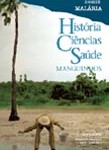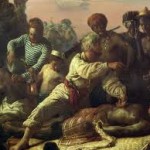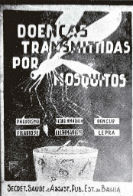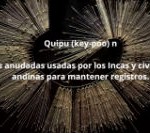August 2022

Dengue researchers at IOC. Photo: Fundo Hermann Schatzmayr do Departamento de Arquivo e Documentação DAD/COC-Fiocruz.
The article The emergence of dengue as a virological challenge: from phantom disease to “pet” endemic, 1986-1987 explores how dengue presented a virological challenge and mobilized efforts by virologists and scientists during the 1980s in order to build expertise in arboviral diseases.
Although outbreaks were reported throughout the twentieth century, dengue was barely known in the Americas until the epidemic of dengue fever in Cuba in 1981. Dengue hemorrhagic fever is still a major challenge at the present time, with new outbreaks every year due to the co-circulation of the four serotypes of the virus.
In this article published in the latest issue of HCS-Manguinhos (Apr-Jun 2022) Jorge Tibilletti de Lara, Doctoral candidate at Casa de Oswaldo Cruz/Fiocruz, explores the main impacts of this disease on Oswaldo Cruz Institute (IOC), on the careers of scientists, on the incorporation of new laboratory techniques for the study of viruses and particularly arboviral diseases, and on the way virology positioned itself with regard to new problems in the sphere of public health. This study brings new sources to the historiography and presents some novelties as well as analytical possibilities, and primarily emphasizes the role of viruses and virology in discussions on disease and public health.
Lara, Jorge Tibilletti de. A emergência da dengue como desafio virológico: de doença-fantasma à endemia “de estimação”, 1986-1987. História, Ciências, Saúde-Manguinhos [online]. 2022, v. 29, n. 2 [Accessed 3 August 2022] , pp. 317-336.
Read more about dengue fever, yellow fever, zika virus in HCS-Mnaguinhos:
Fiocruz carries out studies with mosquitoes to reduce transmission of dengue fever The Oswaldo Cruz Foundation (Fiocruz) has taken an important step into the project “Eliminate Dengue”, a natural method to block dengue virus transmission in Aedes aegypti.
Our current issue is now available online Topics include, among others, dengue fever in the 1980s, astronomy in Chile, Chinese diaspora and racism in Peru, pesticides in Franco’s regime and medicine during the Holocaust.
Zika and Aedes aegypti: new and old challenges The current issue of HCSM (vol.24 no.4 Oct./Dec. 2017) features a debate about the zika epidemic, which came to the fore when the disease raised a series of concerns related to birth defects.
Zika in the International Relations perspective According to João Nunes, the discipline of International Relations can contribute to the study of Zika by enabling a more detailed exploration of inequalities at the global level.
Human sciences against zika Researchers of the international consortium ZIKAlliance gathered at Fiocruz to discuss the social aspects of the disease, such as the effects of campaigns and sexual rights.
Zika, social sciences and humanities International conference about the role of social sciences in the struggle against Zika. March 30, 2017, ENSP/Fiocruz
Ethics guidance on key issues raised by the Zika outbreak The document released by the Pan American Health Organization (PAHO) presents recommendations on the domains of healthcare delivery and research.
WHO Zika information resources available online The WHO website put together information resources about the zika virus.
The fight agains zika in Venezuela The photographer Manu Quintero documents Zika in Caracas.
Zika virus can cross the placenta at any stage of pregnancy This recent research analyzed tissues of Brazilian pregnant women. One woman gave birth to a healthy baby despite the presence of the virus in her samples.
Zika virus and rubella: similarities and differences Researcher Ilana Löwy, from the Institut National de la Sante et de la Recherche Médicale Paris, traces a parallel between the current zika epidemics in Brazil and past rubella outbreaks.
Zika and Aedes aegypti: new and old challenges The current issue of HCSM (vol.24 no.4 Oct./Dec. 2017) features a debate about the zika epidemic, which came to the fore when the disease raised a series of concerns related to birth defects.
Aedes aegypti: antiguas y nuevas emergencias sanitarias Jose Moya y Monica Garcia mostrarán un panorama de los procesos biológicos, sanitarios, históricos y sociales en los que se ha desarrollado el mosquito Aedes aegypti y las enfermedades relacionadas.
La OPS y el enfrentamiento a la pandemia en Cuba Para José Moya, representante de la OPS/OMS en Cuba, el país ha llevado una respuesta a la pandemia sostenida por su sistema de salud, el desarrollo de la ciencia, una única vocería oficial sobre los datos epidemiológicos, y un plan de enfrentamiento a la pandemia que involucró a todos los sectores de gobierno.
Contribuciones originales a la historia de la medicina Una entrevista con Mónica García, profesora de la Universidad del Rosario, sobre los enfoques y narrativas de la historiografía de la fiebre amarilla en América Latina.








